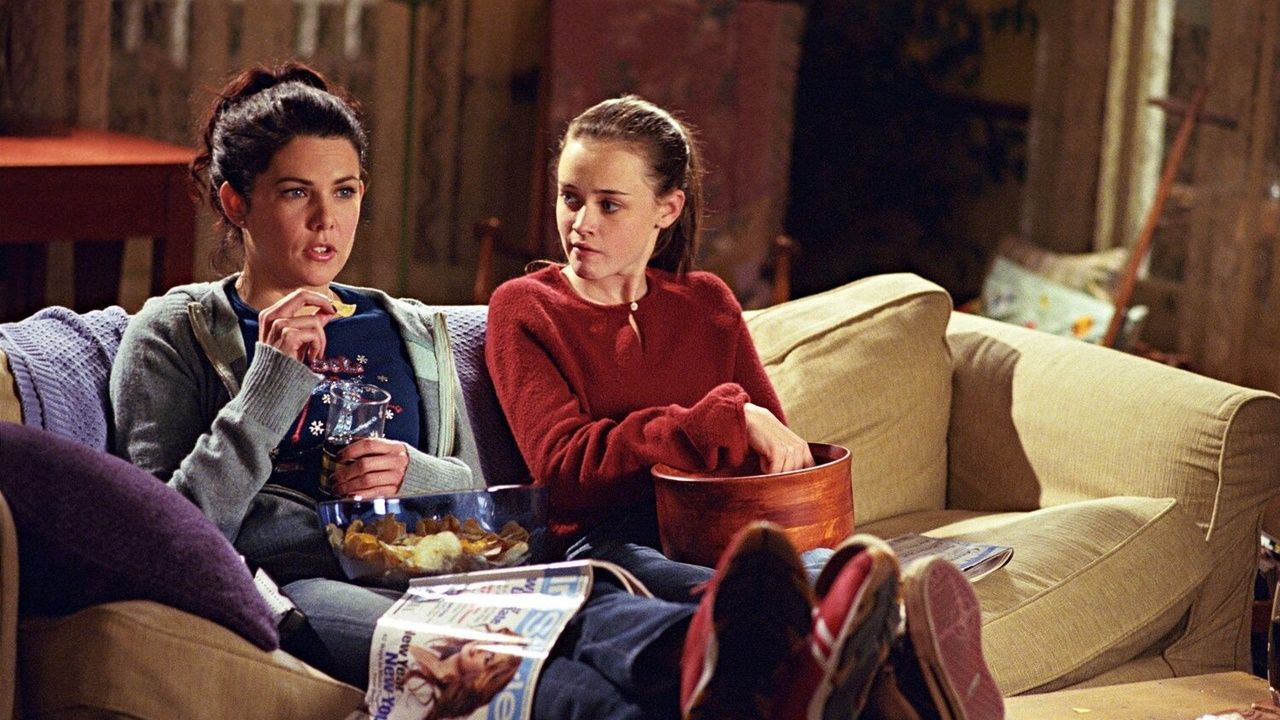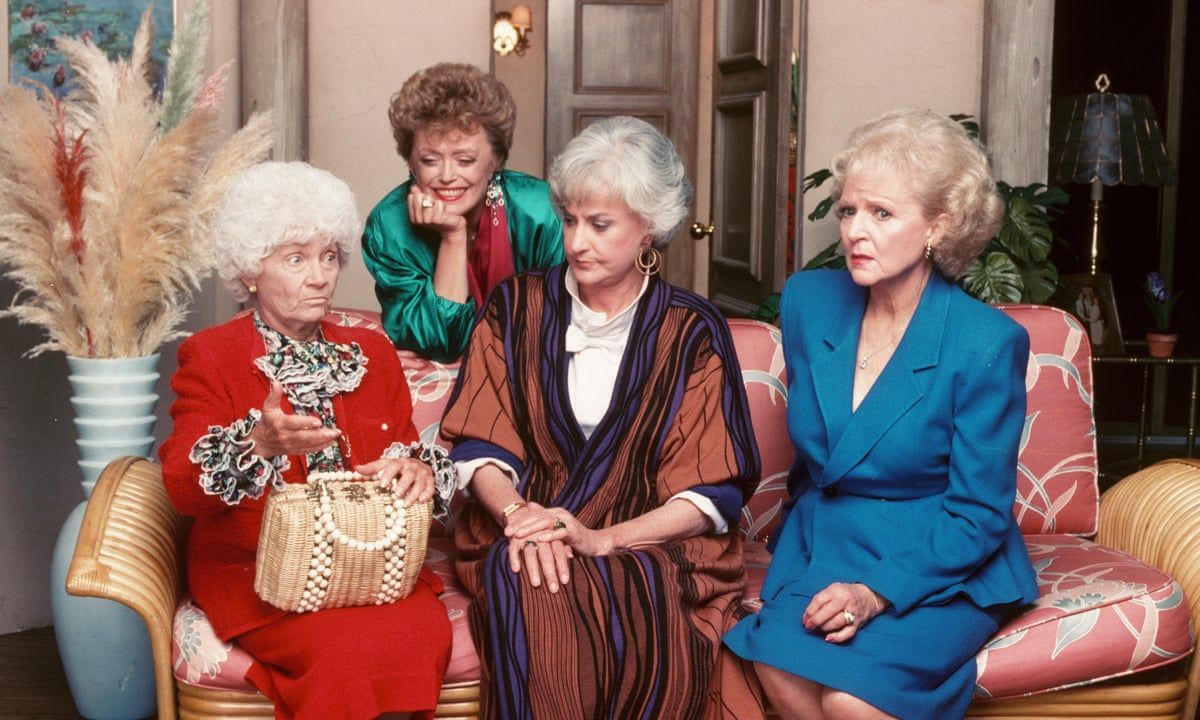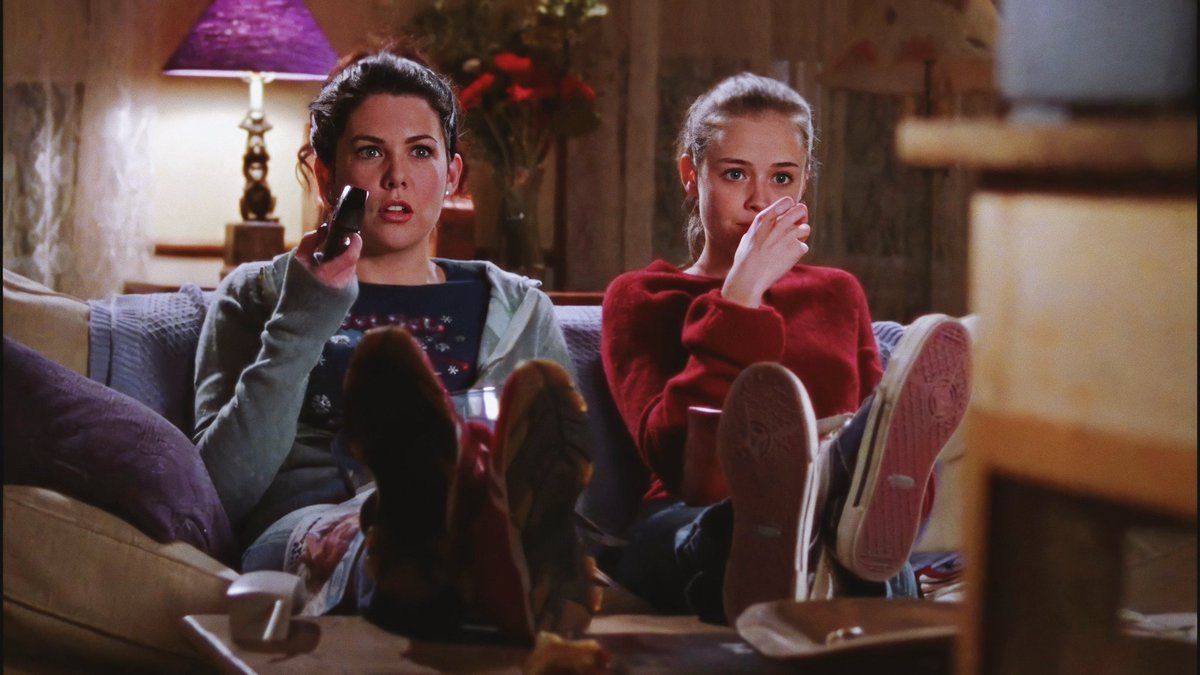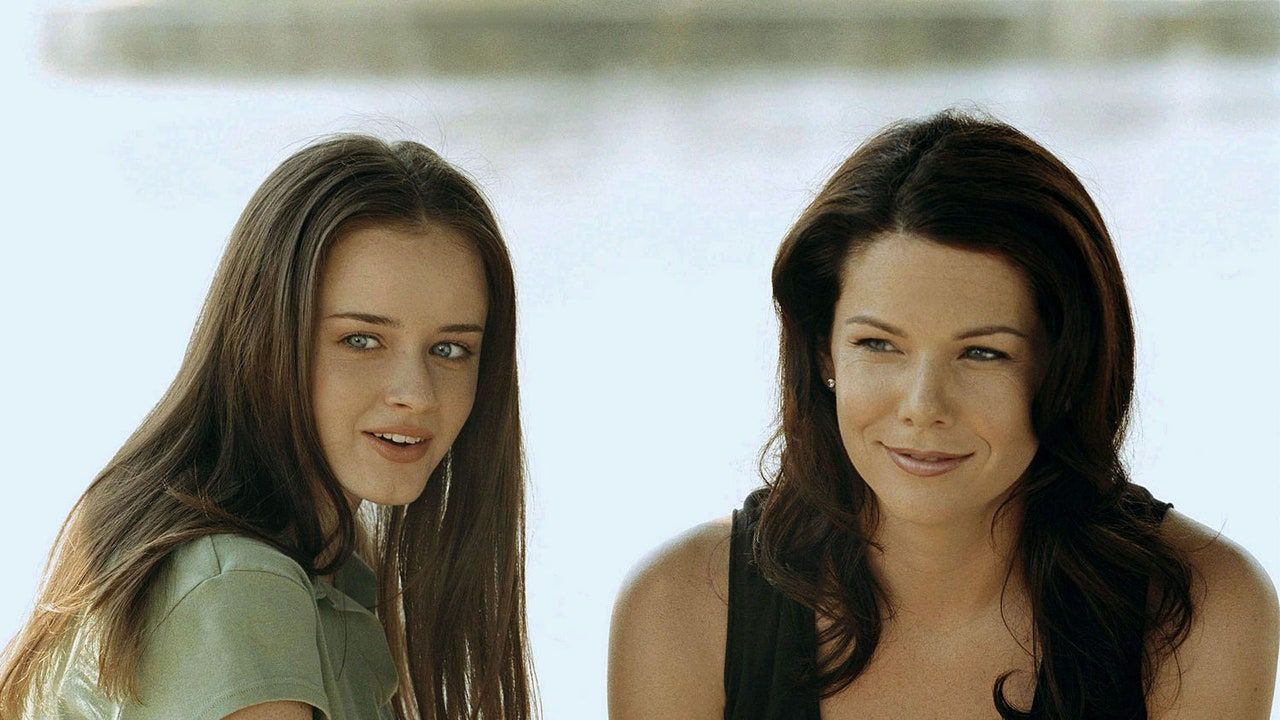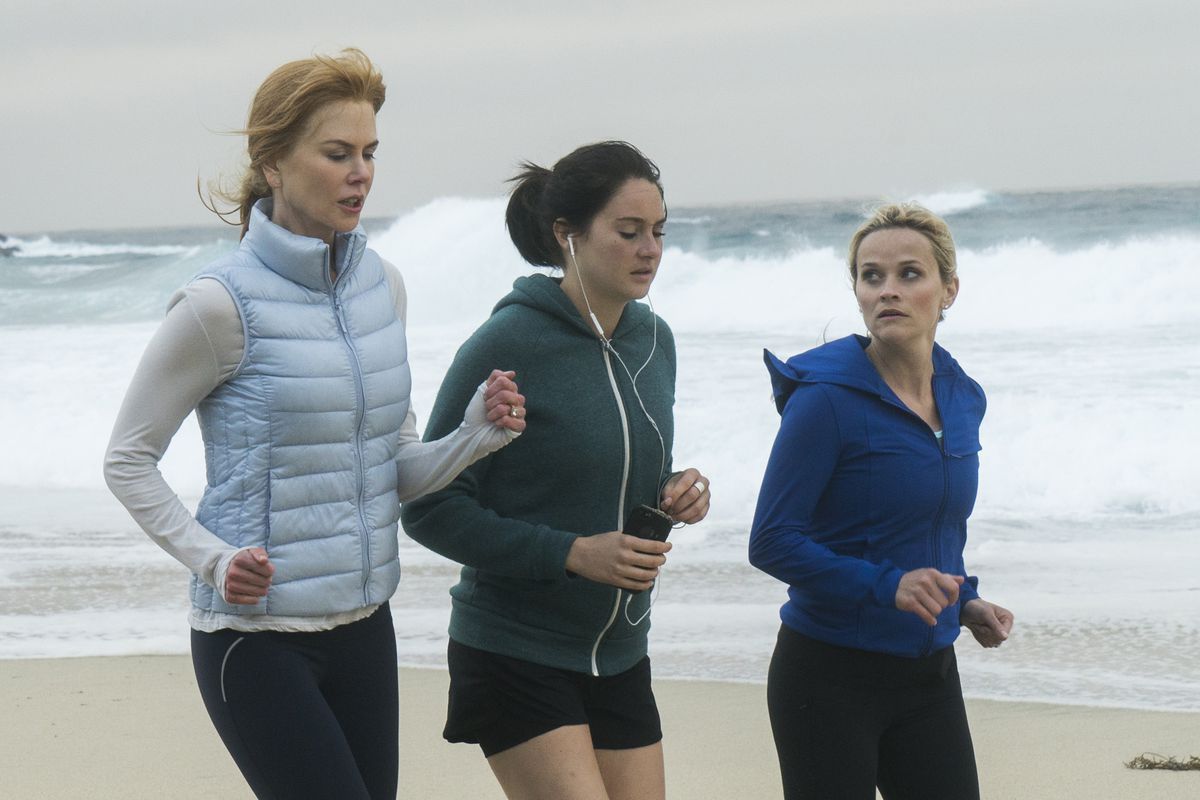"Where you lead, I will follow. Anywhere that you tell me to…" Gilmore Girls' theme song encapsulates everything the show is about. A witty and smart story of an iconic duo that, until the show's release, had never been portrayed this way before. The stories from Amy Sherman-Palladino, the creator and executive producer, are very distinct can be recognized everywhere. Her fast-paced dialogue and honesty in portraying flawed characters can be seen in other hit shows like Marvelous Mrs. Maisel.
A mother and daughter who captivated an audience for seven seasons (along with A Year in the Life, the Netflix special) because of how accessible they felt. The laughs, internal jokes, and movie trivia created the world of Stars Hollow, which everyone wanted to be a part of. These Gilmore Girls paved the path for shows like Jane the Virgin, where the viewer has a unique experience with motherhood in different stages of a woman’s life. They also anticipated shows where this particular relationship isn't the focus but is shown humorously while also tackling racism and sexism, such as in Black-ish.
Gilmore Girls is about Lorelai (Lauren Graham) and her teenage daughter, Rory (Alexis Bledel). Rory is a book-smart sweet young girl that got a spot in a private high school. Lorelai, however, has to give up her pride and ask her parents, with whom she hasn't spoken for years, for monetary help. This event sets the wonderfully narrative about a small town that feels huge and a mother and daughter that will make you want to call your mom the moment season seven finishes. Here is why the show changed how this relationship and motherhood were portrayed on television.
Television History
Television quickly became the main form of entertainment consumption when it got popular in the 1950s. Television helped shape the ideals society had about family, careers, and what a woman and a man should be. A decade later, television dictated social trends.
Portraying happy families was the most popular sitcom theme in 1950. They showed what a good wife should do (cook, clean, take care of the children) and what a husband should do (work to support the family). A while later, shows that depicted families differently started to emerge. The first show to focus on the mother rather than the father happened in 1958, on The Donna Reed Show.
Over thirty years later, a television show showed a woman choosing to raise her child alone, raising a lot of debate at the time, on Murphy Brown. There were a few shows that can be considered milestones for how they portrayed women and their lives. The Mary Tyler Moore Show was a landmark in this regard, showing a working single woman leading her own show, and Betty White joined the cast in its fourth season, before appearing in The Golden Girls. The Golden Girls defied television expectations when casting four older women as protagonists, amongst them the great Betty White, and used their everyday life and struggles to tell their story in a hilarious way.
Another one is I Love Lucy. What made Lucy stand out from other stay-at-home moms on television is that she had the drive to seek more. She was not happy staying at home and taking care of her children: she would find a job, venture into schemes, and try to get her lucky break. Even though her attempts always ended disastrously, she always came back on the next episode searching for something new. Lucy was also the first TV character to be pregnant on screen, which at the time was scandalous because it meant that the characters (at some point) had a sex life.
Junk Food, Movie Marathons and Feminism
Though the history of women in television is vast and varied, what is refreshing and makes Gilmore Girls have a tone that was never previously seen is how candid Rory and Lorelai's relationship is. Motherhood cost Lorelai her old life and her already broken relationship with her parents (she was 16 when she got pregnant and had to leave the life they'd planned for her). While the love and respect this duo have for each other is palpable through the screen, they also had huge fights, and usually disagreed on the best way to act in difficult situations.
The show did an awesome job showing how special this relationship is, always comparing their relationship with others around them. Even Lorelai and her mother Emily's relationship gets an amazing development as the seasons progress. There are moments where the viewer sees how Emily's faulty relationship with Lorelai directly impacts how she acts with her daughter. In season one, episode nine, Rory went to a ball and didn't come home. Emily wakes Lorelai, screaming that Rory isn't in her room. After freaking out that she had spent the night with her boyfriend, Emily immediately blames Lorelai for what happened.
Emily leaves the house, and Rory comes in, having heard the entire argument. Lorelai starts to scream at Rory that she will not get pregnant like she did when she was 16. Rory then points out that Lorelai knows it was a mistake and that nothing happened, but that she is mad Emily saw what occurred. There is a moment of silence when Lorelai understands why she lashed out at her best friend when she sees her daughter crying and going to her room.
The honesty of this scene is only one of many examples of how they dealt with motherhood. It constantly reminded the audience that their relationship is not perfect, and raising a young girl isn't easy. Before Gilmore Girls, there was always a feeling of falsity regarding characters' behavior or how they dealt with certain situations in TV shows. This series became relatable because, even if someone who isn't as close to their mother or daughter as these two are, they could see themselves in their struggle to live together. Palladino said that "Motherhood is built into my character development process," when talking about Marvelous Mrs. Maisel, but it obviously applies to her older series.
The show is also extremely feminist. The story is about a relationship with a teen mom that think Rory was the best thing that ever happened to her. She raised her completely alone and in a small town that saw Rory as something extraordinary from the moment they moved there. Both of them are completely themselves and are proud of it.
Having a kid so young influenced everything Lorelai is and does. Even their silly arguments or the serious ones are filled with the personality of these characters, showing the audience repeatedly how different and similar they are. Lorelai isn't prouder when Rory gets all A's than she is when her daughter quotes a perfect line from Rosemary's Baby. This playfulness allowed the show to have a light tone even when dealing with difficult subjects. They are always there for each other even when they are mad or frustrated. Their relationship is the solid foundation that allowed to show to grow for so long.
Other Representations
Recently, there has been a lot of different mother and daughter representations on TV. On the drama-filled TV series This Is Us, there are contrasting relationships between the characters. Kate (Chrissy Metz) and Rebbeca (Mandy Moore) always felt like they couldn’t connect when Kate was a teenager. This changed once they open up about experiences that molded how they interacted. Beth (Susan Kelechi Watson) had to deal with how to be a real mother to Deja (Lyric Ross) after she adopts her when she was eight years old and experienced a lot of trauma. These are only a few examples that appear on the show that has the ugliest cry-worth moments on television today.
Another TV series that has motherhood as the primary subject is HBO's hit show Big Little Lies, a dark story about abusive relationships, sexual assault, and what it means to be a good mother. Sometimes that means having to give up living with your daughter because it was the best thing for her, like Madeline (Reese Witherspoon), or lying to your child about his father to try to protect him, as Jane (Shailene Woodley) did in season one. A more gloomy view on motherhood, this show is one of the best recent HBO releases.
Mother and daughter relationships are as complex as any other, possibly even more so. Its representation got an astonishing development over the years, and Gilmore Girls certainly helped secure that place on the screen, all while cracking Godfather jokes over dinner at Luke's Diner.

